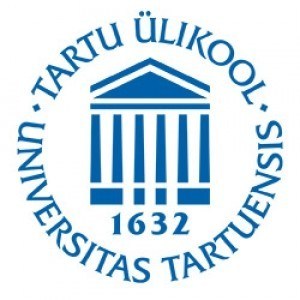Photos of university / #eka_estonian_academy_of_arts
Urban Studies at the Estonian Academy of Arts offers a comprehensive and multidisciplinary approach to understanding the dynamics of urban environments. The programme is designed to equip students with critical insights into the social, cultural, economic, and spatial processes that shape cities and urban life. Through a combination of theoretical knowledge and practical skills, students explore topics such as urban planning, design, sustainability, governance, and community development. The curriculum encourages innovative thinking and creative problem-solving, enabling graduates to contribute effectively to urban development projects and policy formulation. Students have the opportunity to engage in hands-on projects, fieldwork, and collaborations with local communities and professional practitioners. The programme emphasizes the importance of sustainable and inclusive urban growth, preparing students to address contemporary challenges faced by cities worldwide. With a focus on innovative design and strategic thinking, graduates are well-prepared for careers in urban planning agencies, architecture firms, research institutions, and non-governmental organizations. The diverse faculty combines academic expertise with practical experience, fostering an environment of learning, creativity, and critical inquiry. The programme also emphasizes the importance of cultural context and regional specifics, ensuring that students understand the unique characteristics of Estonian urban landscapes while gaining a global perspective. Graduates of Urban Studies will be equipped with the skills to analyze urban issues, develop sustainable solutions, and implement effective strategies to improve urban living conditions. They will be prepared to work across disciplines, contributing to the development of more livable, resilient, and future-oriented cities. The Estonian Academy of Arts provides a stimulating educational environment that encourages experimentation, interdisciplinary collaboration, and innovation in urban development. Students will benefit from modern facilities, access to digital tools, and a vibrant academic community dedicated to shaping the cities of tomorrow.
The core of the Urban Studies curriculum is our signature urban research studio, in which you will analyze and participate in actual urban situations through a combination of desk research, field work, and multi-sited interventions. It differs from an architecture/urban design studio in that we approach design as a practice that is inextricable from and determined by social, political and economic fields. The research studio allows for different outcome formats, such as essays/written reports, installations and happenings.
Additionally the curriculum consists of lecture courses, seminars, a design studio, thematic workshops and skill-based training sessions. Occassionally we organize a master class, and we do not shy from experimental teaching methods, such as reading retreats.
The curriculum combines individual and group study. You will be studying in a small group of no more than twelve students and will be supported by regular consultations with the faculty.
The program consists of 120 ECTS divided in four semesters.
Semester 1
- Studio: Urbanization (8 ECTS)
- Contemporary Urban and Architectural Theory (6 ECTS)
- Studio: Art and The City (4 ECTS)
- Urban History (2 ECTS)
- Drawing (2 ECTS)
- Urban Geography (1 ECTS)
- Model Making (1 ECTS)
Semester 2
- Studio: Urban Futures (8 ECTS)
- Urban Ethnography (4 ECTS)
- Urban Models (4 ECTS)
- Housing: Design and Politics (3 ECTS)
- Urban Tourism and Consumption (2 ECTS)
- Detailed Planning (2 ECTS)
Semester 3
- Urban Design Studio (9 ECTS)
- Studio: Production of Urban Space (8 ECTS)
- Contemporary Urban and Architecture Theory 2 (3 ECTS)
- Master’s Thesis Seminar (3 ECTS)
- Contesting the City (2 ECTS)
- Observation Practice (1 ECTS)
- Internship (1 ECTS)
Semester 4
- Master’s Thesis (30 ECTS)
Additionally, you will collect 15 ECTS in general subjects.
Suitable MA candidate has a Bachelor’s Degree or equivalent qualification in architecture, landscape architecture, geography, construction, art history, sociology, urban planning, political science, or other arts & humanities fields.
The selection process has two rounds. First, the candidates are evaluated on the basis of their CV, previous study performance, motivation letter, and architectural/urban design portfolio or/and writing sample. Shortlisted candidates are then invited for an interview.
In the second round, in-depth interviews are conducted with prospective candidates.
Depending on their previous education/experience, the candidates present an architecture/urban design portfolio, or/and a writing sample (realized/published work is not required, but is an advantage) in a field relevant to urban studies (architecture, urbanism, urban planning, geography, sociology, political sciences, art history, etc.).
Your application should demonstrate intellectual curiosity and an imaginative grasp of the urban question. We require that the candidates have a strong academic record, and a clear idea how their education and experience have prepared them for the urban studies program. They will display that they can think independently and work collaboratively, and pursue studies across urban theory and design. It is necessary to have a good command of English language.
Admission requirements: https://www.artun.ee/en/admissions/masters/admissions/
The financing of the Urban Studies program at the Estonian Academy of Arts is primarily based on a combination of sources that ensure the sustainability and accessibility of the program for students. The main source of funding comes from government subsidies allocated to higher education institutions in Estonia, which support both the operational costs of the university and specific programs such as Urban Studies. These subsidies are provided by the Estonian Ministry of Education and Research and are intended to enable students to pursue their studies with manageable tuition fees and access to necessary academic resources. Additionally, the program may receive funding through European Union structural funds or grants aimed at promoting urban development, cultural heritage, and sustainable planning initiatives. Such funds often support research projects, internships, and international collaboration, enriching the educational experience and providing students with practical expertise and networking opportunities.
Students enrolled in the Urban Studies program can benefit from various scholarship programs offered by the university and external organizations. These scholarships may be merit-based or need-based, helping to reduce the financial burden and make higher education more accessible to a diverse student body. The Estonian Academy of Arts might also implement tuition fee policies that include partial or full exemptions for certain categories of students, such as those with high academic achievement or payment capacity.
Furthermore, the university encourages collaboration with industry partners, local governments, and non-governmental organizations, which can result in project funding and sponsorship opportunities. Such collaborations not only enhance the learning environment but also provide additional financial support for research and practical training components of the program. Tuition fees for international students and residents are structured to reflect the funding landscape, with possible adjustments based on public funding levels and institutional policies. Overall, the financing system for the Urban Studies program at the Estonian Academy of Arts integrates governmental support, EU funding, scholarships, industry cooperation, and tuition fee policies, aiming to maintain high-quality education while ensuring affordability for students.
The Urban Studies program at the Estonian Academy of Arts is designed to provide students with a comprehensive understanding of urban environments, their development, and the social, cultural, and spatial dynamics that shape cities. The program aims to equip students with multidisciplinary knowledge and practical skills necessary for analyzing and designing urban spaces, considering both historical and contemporary challenges. Students engage with a broad range of topics, including urban planning, architecture, social geography, environmental sustainability, and cultural theory. The curriculum emphasizes critical thinking, innovative problem-solving, and sustainable development principles to prepare graduates for careers in urban planning, design, consultancy, policy-making, and research.
Throughout the program, students participate in theoretical coursework, practical workshops, and field assignments, allowing them to apply their knowledge in real-world contexts. The program also fosters collaboration with local communities, governmental agencies, and private organizations, providing students with opportunities for internships and collaborative projects. Emphasis is placed on cultivating an understanding of the socio-economic factors affecting urban development and integrating environmental considerations into city planning processes. Students gain proficiency in using modern design tools, Geographic Information Systems (GIS), and digital visualization techniques to communicate their ideas effectively.
The faculty includes experienced professionals from academia, urban planning, architecture, and related fields, ensuring a well-rounded education grounded in both theoretical frameworks and practical experience. The program encourages students to develop innovative solutions that address contemporary urban issues such as sustainability, gentrification, transportation, and affordable housing. By the end of their studies, graduates are expected to possess a strong analytical ability, creative design skills, and a comprehensive understanding of urban dynamics, enabling them to contribute effectively to the development of livable, inclusive, and sustainable cities.
The Urban Studies program at the Estonian Academy of Arts is tailored to meet the needs of a rapidly changing urban landscape, aligning with global trends in smart city development, digitalization, and environmental consciousness. It aims to foster responsible professionals committed to using their knowledge to improve urban life and ensure the resilience of cities in times of change. The program is suitable for students interested in architecture, urban planning, social sciences, and environmental studies who are eager to explore innovative approaches to shaping urban environments for future generations.


